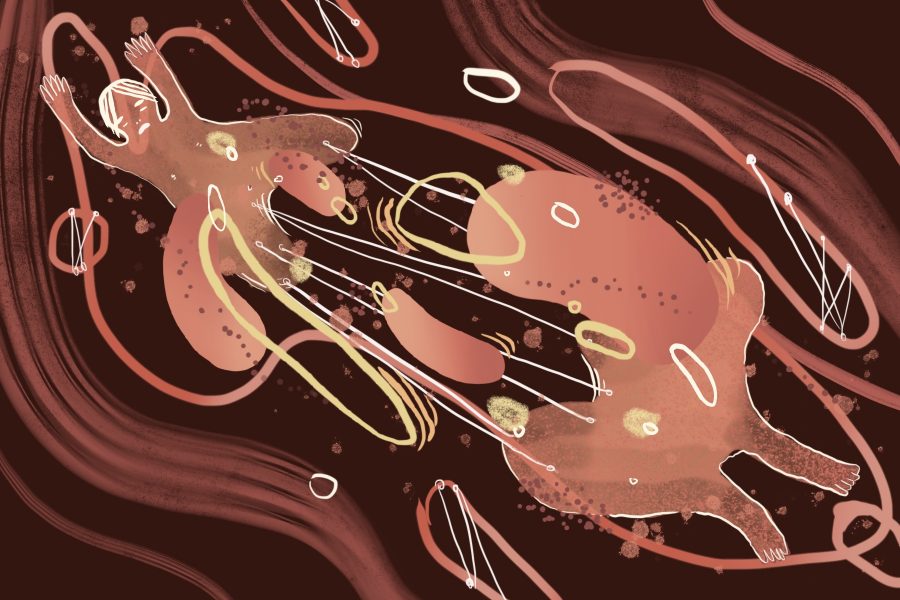When people think of who suffers from eating disorders, they likely think of women first. While women do still statistically suffer more from eating disorders than men do, eating disorders are on the rise for men.
According to Eating Disorders Hope, 40% of those diagnosed with binge-eating disorders are male, which is up from 35% in 2008. Men face a lot of the same pressures as women do when it comes to body image, yet they rarely receive the same visibility when discussing eating disorders.
However, the issue isn’t just that male eating disorders are on the rise. What is more concerning is that men can be hesitant to seek help because of a cultural bias against men with mental health issues and eating disorders. According to Jennifer Barnoud, a registered dietitian at University Health Services, there is a social barrier for men seeking treatment.
“It’s well-known in our culture that men are supposed to be less emotional and stronger and put together,” Barnoud said. “Young adult males are fairly notorious for not seeking healthcare in general, but then you add on the social stigma around eating disorders being a … female’s disease, and that definitely adds another social barrier.”
It takes more significant impairment or illness before men seek treatment. Moreover, men actually deteriorate quicker and have a higher mortality rate than females when having an eating disorder, Barnoud said.
Because the effects of males failing to seek treatment can be devastating, there needs to be a bigger push — from both men and women — to destigmatize mental health and eating disorders. This will encourage men to not be afraid to seek the treatment that they need and to seek help before their condition becomes untreatable.
According to the National College Health Assessment for UT for Spring 2017, 0.6% of male students reported dealing with anorexia and 0.6% of male students reported dealing with bulimia. According to a National College Health Assessment survey of college students across the nation, 1.0% of male students reported suffering from anorexia and 0.9% of students reported suffering from bulimia.
While this makes it look like males at UT are slightly less affected by eating disorders compared to those nationwide, the numbers may also come from the social trend of males reporting their conditions less frequently.
Barnoud emphasized that UHS aims to do whatever they can to destigmatize men receiving help for eating disorders.
“Eating disorders can affect anyone. They don’t discriminate based off of size, gender, sex, shape, socioeconomic status,” Barnoud said. “People struggle across the spectrum, across the world, and it’s important to recognize that, so people can get the care that they need because it is a deadly illness.”
Mental health issues are being taken more seriously now than in past decades. This trend needs to apply to all types of mental health issues. There needs to be a bigger push to reduce the social stigma surrounding men who need help addressing mental health issues, especially eating disorders.
Corwin is a journalism sophomore from Long Island, NY.





















